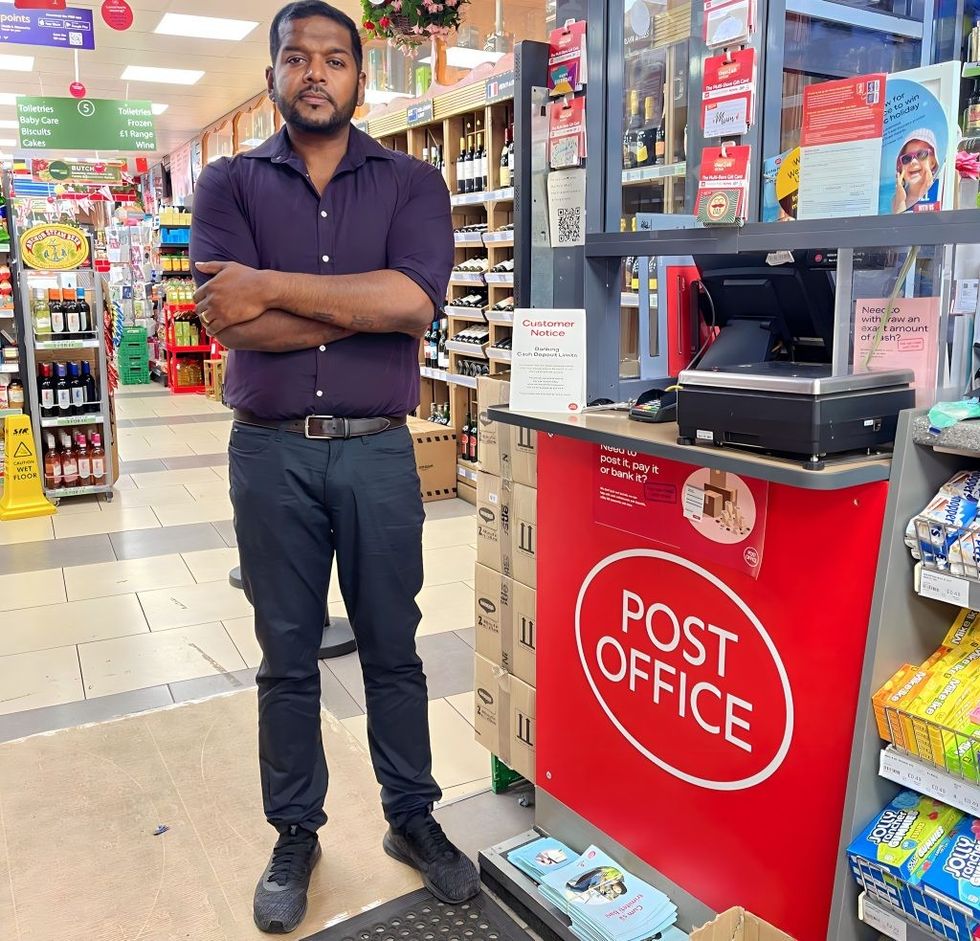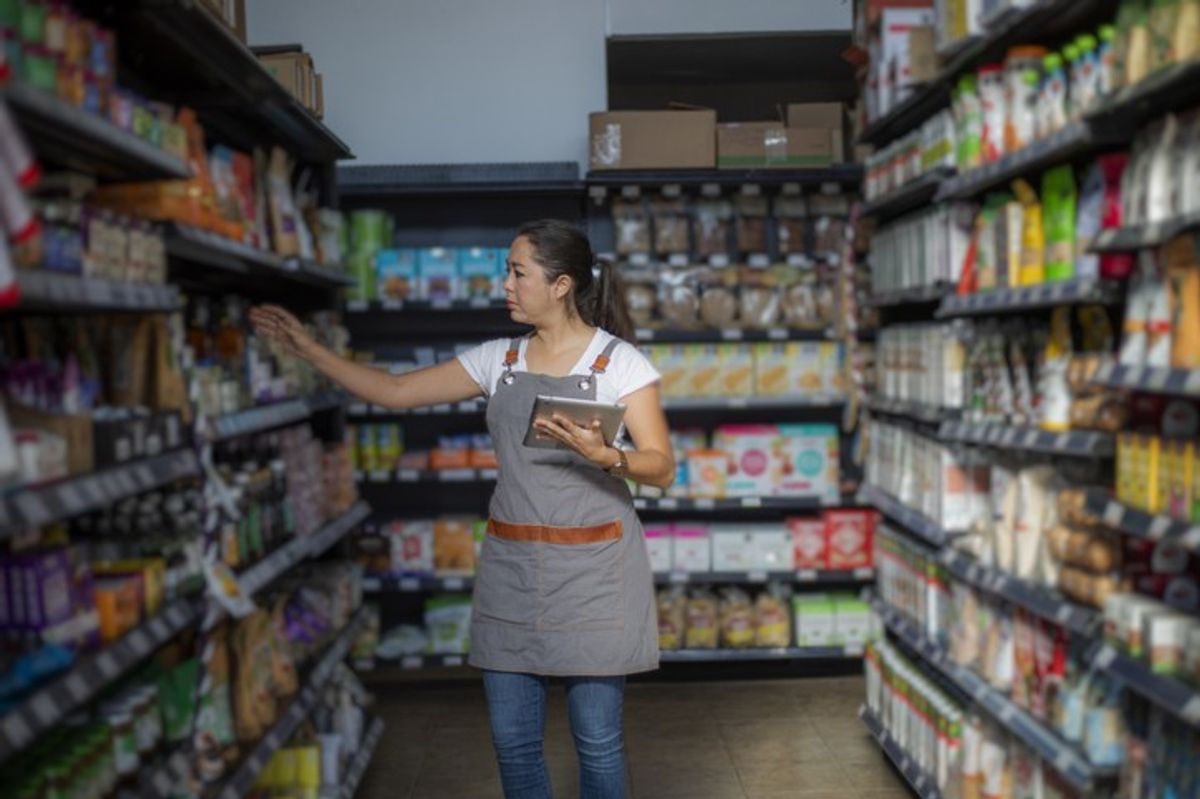Convenience store owners are feeling “abandoned” by the system amid spiking retail crime, Asian Trader has learnt, while some even fear that supermarket giants' new partnership with police to use facial recognition technology might actually end up further driving criminals to smaller independents.
Shoplifting has been THE buzz word for the better part of this year with unusually high numbers of organised looting and blatant crime getting reported from across the country. While several industry reports and official data suggest a sharp 25 to 35 percent spike in retail crime rate, the ground reality is even worse given the fact that a major ratio of such cases goes unreported.
Crime has shot up from a couple of incidents a week to five to six or even more such incidents a day. Criminals have evolved from being sneakier to more blatant. Operating alone or in groups, they are absolutely fearless, and even turn violent if they are challenged in the act.
In the words of retailer Benedict Selvaratnam, the owner of almost a decade old Freshfields Market Convenience store in Croydon, indie store owners are now feeling exposed, abandoned and completely on their own to safeguard themselves against fearless (and sometimes even violent) offenders.
“We have been facing a massive increase in retail crime recently, since the last 12 months specifically. Earlier, we used to have three to five incidences max a week but now we are facing somewhere between three to 10 such cases a day.
“We're based in the town centre in Croydon and criminal gangs here use several techniques to steal. They are very professional- like one of them will distract the cashiers or the floor staff, while the other person with a bag will be empty the shelves- whether it is coffee, meat items, alcohol or chocolates boxes.”
Be it organised criminal gangs or people with drug issues, they simply don't care and have no fear of law, he said.
Ironically enough, on the day of this conversation with Asian Trader, Selvaratnam had already tackled two criminals in his store, and it was not even lunch time- one was a repeat banned offender who nevertheless entered masked up while another man was caught stealing wine bottles.
For both the incidents, Selvaratnam decided not to call the police as the “response has not been great” in the past.
“Whenever we have called them, they always delay in sending someone. Mostly, 70 to 80 per cent of the time, no one turns up. So, we have stopped calling the police and we just try to manage things ourselves. Obviously, when there is violence involved, then we do call them. But otherwise, we don't bother," he said.
Left alone and unsupported, Selvaratnam is forced to take measures on his own to save his business. He now employs extra staff, some to only keep an eye on the shop floor, he said.
“We don’t need that much staff but since we are in the middle of this shoplifting epidemic and since we are also left alone to safeguard ourselves, we are forced to keep extra staff from our own pocket. However, not everyone can afford that.
“We are a younger team so thankfully, we are still able to deal with this. But I am aware that there are so many smaller retailers who just can't afford extra staff while some others are getting closer to the age of retirement and they are not in a position to physically protect their stores,” pointed out Selvaratnam.

The environment, the daily struggle with criminals, the constant tension and stress are now taking a toll on the mental health of store owners as well as of their staff.
“We already work for 12-14 hours a day. It’s so painful that someone can just walk in and take what they want and leave,” he said.
“It's tough on me; it's tough for the mental health for the team. I have also had a couple of female staff resign earlier this year as they were too shaken after some people jumped over the counter.”
Selvaratnam’s Croydon store has CCTV cameras in place though he feels they are not of much use.
"We already have 14 cameras but it's just deterrence. It doesn't actually stop people from shoplifting.”
If the situation is not tackled as a priority, it will become tougher to find people to work in retail, particularly in indie stores, he warned.
Since the government and police are not doing enough, people who are committing crimes are not afraid and continue to roam freely because they know there are no consequences. The repeat offenders, who are banned from the store, don’t hesitate in trespassing and steal again.
“It almost feels like shoplifting has almost been decriminalized. Police just give a crime reference number; it's almost like an insurance job. For under the value of 200 pounds, they don’t even visit the premises. Shoplifters and criminals are also well aware that the police won't do anything.
“Earlier, the offenders were at least taken to the police station and given a caution. None of these is happening now as the police are not even attending and, on the days, if they do, the criminal is long gone. It’s not happening only to us, but it is happening up and down the country,” Selvaratnam said, speaking on behalf of about 100 other retailers from South London who have the same woes to share.
Feeling more exposed
Answering the calls of tougher laws on retail crime, a new Retail Crime Action Plan was unveiled last month by policing minister Chris Philp, outlining how police attendance at the scene for retail crime will be prioritised in circumstances in cases of violence, where a repeat or prolific offender has been detained or where evidence needs to be promptly secured.
Where CCTV or other digital images are secured, police will run this through the Police National Database using facial recognition technology to further aid efforts to identify and prosecute offenders – particularly prolific or potentially dangerous individuals.
Project Pegasus, a unique partnership between businesses and police, has also been launched. The initiative is said to radically improve the way retailers are able to share intelligence with policing, to better understand the tactics used by organised retail crime gangs and identify more offenders.
So far, 13 of the country’s big retailers, like Aldi, B&Q, Boots, Coop, John Lewis Partnership and Lidl, have pledged to fund a new police team of specialist officers and analysts to work within policing in a structure called OPAL - a national team that oversees serious organised acquisitive crime, run by North Wales Chief Constable Amanda Blakeman.
The move is being widely welcomed by supermarkets, retail giants and trade bodies alike though with words of caution.
Association of Convenience Stores (ACS) has welcomed the move but also stated that a lot of hard work needs to be done to turn around the surge in retail crime.
“Image capture, data sharing and arresting repeat offenders are key, but if we want to get perpetrators off the streets we also need effective sentencing and other interventions like drug rehabilitation to break the cycle of reoffending,” ACS chief executive James Lowman told Asian Trader.

British Independent Retailers Association (BIRA), which works with over 6,000 independent businesses of all sizes across the UK, is also one of the bodies that has welcomed the police’s renewed commitment but with caution.
"The fact that large retailers are prepared to fund this kind of project tells us how big the problem is. As always though, actions will speak louder than words and we will hold the authorities to account if they do not deliver their commitments,” Andrew Goodacre, CEO at BIRA, told Asian Trader.
“Large retailers will always have the funds to invest in security and technology – the kins of investment that cannot be matched by the small independent retailers. This may leave the smaller retailer vulnerable to retail crime and we would like to think that the police will treat all retailers (large or small) with the same priority.”
Goodacre added that there is a lot of work to restore retail trust in the police and legal system regarding retail crime as for too long it has been a low priority and the criminal fraternity have now realised that shops are “low-risk, high reward targets”.
Some local store owners like Selvaratnam are skeptical about their position in this scheme of things.
Selvaratnam feels the police’s latest “high-tech solution” is not affordable for small retailers without a government grant or proper support.
“It seems that we won't be able to afford such measures. As a result, a lot of these criminals and shoplifters will be driven into smaller independents that don't have this facility. They will now turn to us and steal even more from us because it will be so much more difficult for these people to steal from the bigger stores,” pointed out Selvaratnam.
Clarion Call
For concrete results, the Croydon retailer is calling for stronger police response and more serious government attention, support and funding, saying authorities need to take local stores more seriously.
The situation is somewhat similar in Scotland as well with 8,000 reported cases of shop worker abuse or assault since August 2021. In a joint letter signed by independent retailer body The Fed, Scottish Retail Consortium, the Scottish Grocers’ Federation, Usdaw, the Scottish Co-Op Party, and GMB Scotland, Scottish Labour MSP Daniel Johnson, who introduced the Protection of Workers (Retail and Age-restricted Goods and Services) (Scotland) Act 2021, the associations are calling on for more teeth and concrete support.
“The new legal protection offered by my bill was an important step forward, but it must be backed up with a comprehensive plan to prevent these crimes as well as prosecute them,” states the letter by Johnson to chief constable of Police Scotland.
Meanwhile, retailer bodies like The Fed are calling on that small shops should receive £1,500 from the government to help “beef up” security systems. The group is calling for “financial help” to deal with “record levels” of shop crime, claiming that financial pressures on shops had left many “simply unable” to afford the £4,500 average annual bill per shop on upgrading and maintaining security measures.
While this year has been worse in terms of crime, Selvaratnam is particularly worried about the coming days as he is expecting a further rise during the coming winters.
“At the end of the day, the buck stops with the government. It is time that the government change or do something to help small local shopkeepers- whether through grants or by increasing police force.”
“During the pandemic, the key workers were doctors or nurses. Now, there is this shoplifting epidemic happening in the country and we are on the front line who are facing everything. But we are not getting protected nor any form of support.”
“We feel abandoned. We feel that the government and police have decided that as independent businesses, we can and should protect ourselves. But we are not the police; we are retailers and that's what we are good at. Policing the area outside our stores or people's behavior inside is not our job!” he concluded.


